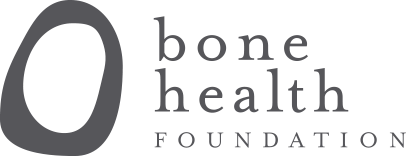Bone Health For All
By building the right foundations for strong bones early in life, and then looking after those bones, many painful musculoskeletal conditions can be minimised or even prevented.
Did you know / the facts?
“4.74 million Australians over the age of 50 (66% of over 50’s) have osteoporosis, osteopenia or poor bone health”
The good news is, it’s actually not very difficult. Good bone health comes down to three key elements, Calcium, Vitamin D and Exercise….
…and the good news is, it’s never too late to start.
Kids
Did you know that a child aged 4-8 needs to get Calcium, Vitamin D and Exercise at three times the rate of older kids and adults? That’s because young bones are growing and getting stronger.
It is therefore important to promote bone health and create healthy habits from a young age. Peak bone mass is the greatest amount of bone an individual can attain. We generally reach peak bone mass in our 20’s. It is therefore extremely important that children and teens eat a well-balanced diet including calcium rich foods, have the right amount of Vitamin D and are active every day.
One of the best ways to encourage healthy habits in your children is to be a good role model yourself. Remember, achieving peak bone mass in our younger years means we can maintain better bone health as we grow older.
What can I do to help my children achieve Peak Bone Mass?
Provide a well-balanced diet including plenty of calcium rich foods
Be sure they get adequate Vitamin D
Be active – Children and teens alike need to be active every day with at least 60 minutes of moderate exercise
Too much exercise or extreme dieting can be just as harmful – so if you see your child or teen exercising or dieting to excess, speak to them and your health care provider
Teach your children and teens the importance of leading a healthy lifestyle. Talk to them about the importance of avoiding smoking and underage drinking as these activities are extremely harmful to bones among other things
Teach your children the importance of safety, for example encourage them to wear protective equipment during sporting activities such as helmet and shin guards to protect bones
Adults
Like most people you probably don’t think about your bones until something doesn’t feel right. Bones do more that just keep everything in place, they provide support and structure for your body, protect vital organs and help us move, as well as storing essential minerals.
As we age bone cell formation slows down until it ceases altogether in adulthood. That’s when our bones can start to lose strength and are at greater risk of fracture. It is therefore important to protect bone health by ensuring the rate of bone formation is greater than the rate of resorption.
Factors that can contribute to bone loss include having a diet low in calcium, not exercising, smoking, alcohol and taking certain medications such as corticosteroids
Seniors
When you think about bone health, osteoporosis is probably front of mind. You may think of broken bones that can happen to people with this disease.
Other images may include height loss and stooped or hunched posture. In addition to these more obvious bone health concerns, there are other disorders which include scoliosis, sciatica and slow healing fractures to name a few.
Many of us also do not consider the impact of poor bone health on a person’s emotional and social wellbeing. People who have already broken a bone due to osteoporosis are more likely to break bones again in the future. For many, that second fracture can lead to depression. Several studies show a link between bone loss and depression.
Not only is Osteoporosis an issue for the person involved and their family – there is a costly and increasing burden on the health care system.
Don’t believe the myth, bone loss does not have to be a normal part of getting older. Whatever your age you can look after your bones with healthy lifestyle choices like eating right, exercising more and getting adequate Vitamin D




